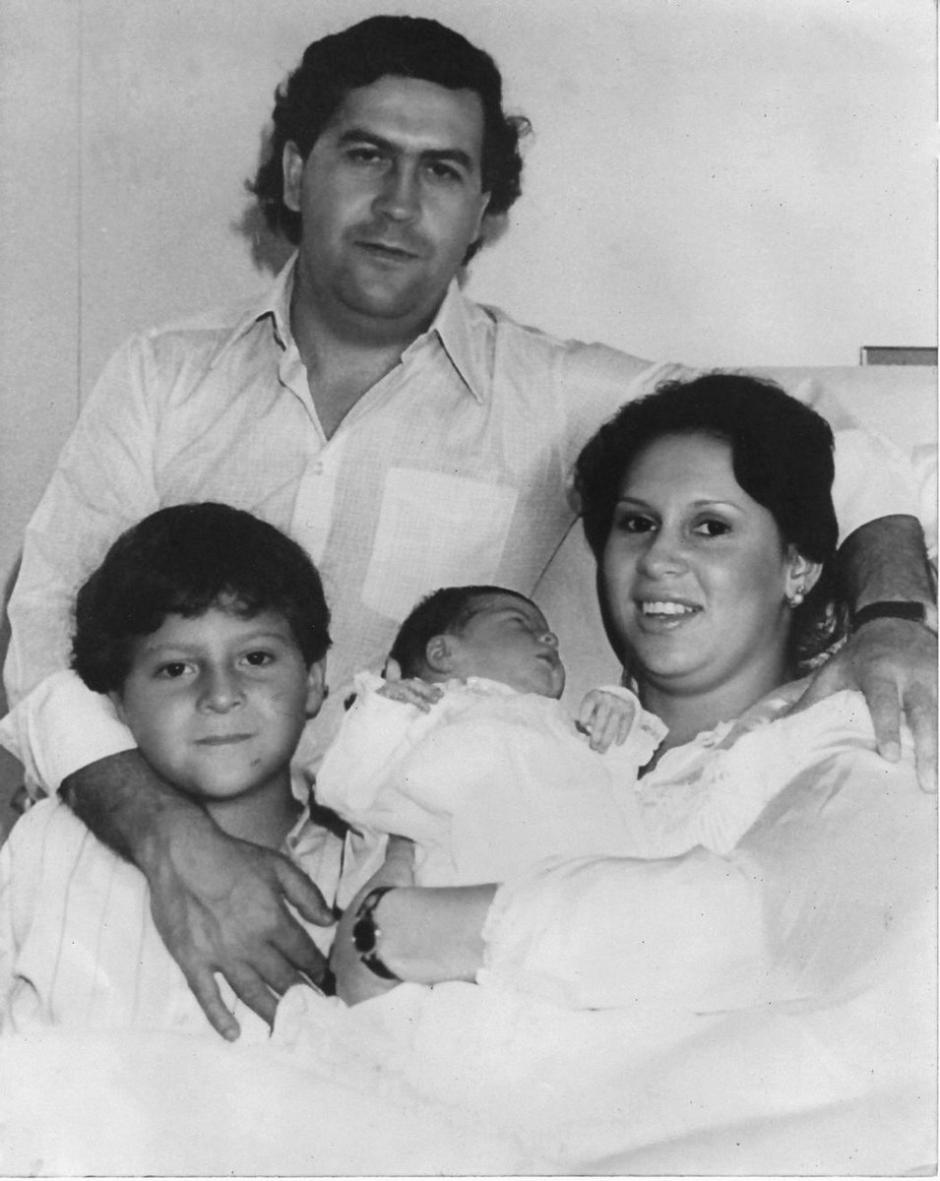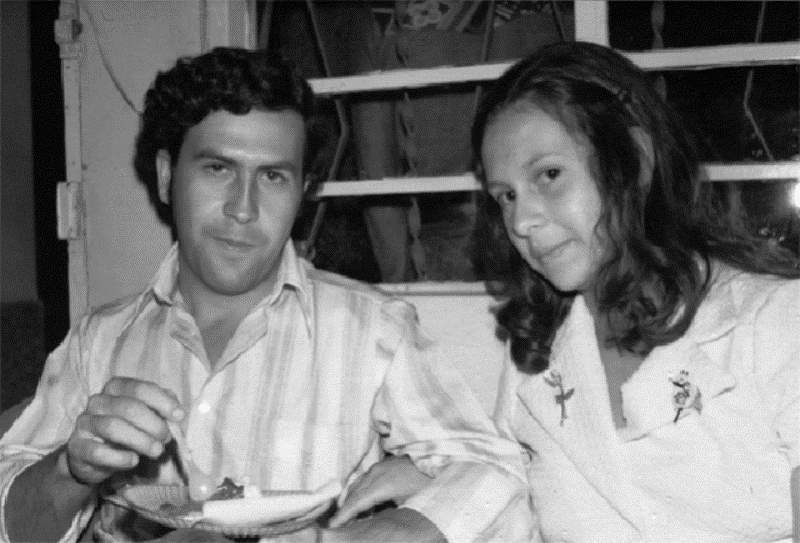The legacy of Pablo Escobar, the infamous Colombian drug lord, is one that continues to evoke fascination and intrigue. While his reign of terror came to an end in 1993, the impact of his life and crimes reverberated through the lives of his family members long after his death. As the world grappled with the consequences of Escobar's powerful drug empire, his family found themselves navigating a landscape fraught with danger, loss, and resilience. This article delves into what happened to Pablo Escobar's family, exploring their struggles, adaptations, and ultimate survival in a world forever changed by his actions.
Following Escobar's demise, his family faced not only the shadow of his notorious legacy but also the relentless pursuit of those who sought to claim justice for the pain he inflicted. The repercussions of his life choices stretched beyond borders, affecting not only their safety but their very identity. In the years that followed, they were forced to reinvent themselves, grappling with the stigma attached to their last name while seeking a semblance of normalcy. The journey of Pablo Escobar's family is a poignant tale of survival, marked by both the pursuit of freedom and the haunting memories of a troubled past.
In the quest to understand what happened to Pablo Escobar's family, one must look beyond the headlines and sensationalism. This narrative reveals the complexities of their lives, highlighting their struggles and triumphs in the face of overwhelming adversity. From fleeing their homeland to seeking refuge in distant countries, the Escobar family has faced numerous challenges, yet they have also shown remarkable resilience. What does their story tell us about the enduring effects of crime and the human spirit's ability to rise above even the darkest of legacies?
Read also:Cat Care 101 A Comprehensive Guide To Keeping Your Feline Friend Happy And Healthy
Who Was Pablo Escobar?
Pablo Escobar was born on December 1, 1949, in Rionegro, Colombia. He rose to infamy as the founder and sole leader of the Medellín Cartel, which, at its height, controlled a significant portion of the cocaine trade into the United States. Known for his ruthless tactics and immense wealth, he became one of the richest men in the world during the 1980s.
| Detail | Information |
|---|---|
| Name | Pablo Emilio Escobar Gaviria |
| Birth Date | December 1, 1949 |
| Death Date | December 2, 1993 |
| Nationality | Colombian |
| Occupation | Drug Lord, Philanthropist |
| Spouse | Maria Victoria Henao |
| Children | Juan Pablo, Manuela |
What Happened to Pablo Escobar's Family After His Death?
After Escobar's death in 1993, his family faced a perilous existence. With the collapse of their patriarch's empire, they became targets for rival cartels and law enforcement agencies. Maria Victoria Henao, Escobar's widow, and their two children, Juan Pablo and Manuela, were forced to flee Colombia. This marked the beginning of a tumultuous journey filled with uncertainty.
Where Did They Seek Refuge?
The Escobar family initially sought refuge in Germany, where they attempted to start anew. However, their past continued to haunt them, and they faced difficulties in establishing a normal life. Eventually, they moved to several countries, including the United States and Brazil, all while trying to maintain a low profile.
What Challenges Did They Face Abroad?
Living in exile was not without its challenges. The stigma associated with the Escobar name followed them, making it difficult to integrate into new communities. They endured constant scrutiny from the media and public, which often painted them with the same brush as Pablo Escobar. Despite these obstacles, they worked hard to build a new life for themselves.
- Fear of retribution from rival drug factions
- Struggles with identity and societal acceptance
- Financial instability after losing their fortune
- Constant media attention and scrutiny
How Did They Rebuild Their Lives?
Over time, the Escobar family found ways to adapt and rebuild their lives. Maria Victoria Henao, in particular, played a crucial role in ensuring her children had access to education and opportunities. Juan Pablo, who later changed his name to Sebastian Marroquín, pursued a career in architecture and even began speaking publicly about his father's legacy.
What Role Did Juan Pablo Escobar Take?
Juan Pablo, now known as Sebastian Marroquín, has become an outspoken critic of his father's legacy. He has written books and given interviews discussing the impact of drug trafficking on society and the dangers of a life steeped in crime. Through his work, he aims to distance himself from his father's actions while promoting a message of peace and redemption.
Read also:Ruby Bridges Now A Legacy Of Courage And Change
What About Manuela Escobar?
Manuela, the younger sister, has largely kept a low profile compared to her brother. While she has chosen to stay out of the public eye, reports indicate that she has pursued her own interests and has been supportive of her brother's endeavors to address their family's complicated history.
What Happened to Pablo Escobar's Family in Recent Years?
In recent years, the Escobar family has continued to navigate the complexities of their identity. Maria Victoria Henao has faced legal challenges, including allegations of money laundering linked to her late husband's drug empire. Despite these challenges, she has remained a steadfast supporter of her children, emphasizing the importance of moving forward.
How Do They Honor Pablo Escobar's Memory?
The Escobar family has approached their father's legacy with a sense of responsibility. Rather than glorifying his actions, they have chosen to focus on the lessons learned from his life. Through educational initiatives and public awareness campaigns, they aim to shed light on the devastating consequences of drug trafficking and the importance of choosing a different path.
What Legacy Does Pablo Escobar's Family Leave Behind?
The story of Pablo Escobar's family is one of resilience, struggle, and ultimately, redemption. They have faced unimaginable challenges but have also shown remarkable strength in the face of adversity. Their journey serves as a reminder that even in the shadow of a notorious legacy, it is possible to forge a new path and create a positive impact on society.
In conclusion, what happened to Pablo Escobar's family is a complex narrative that encompasses themes of loss, survival, and transformation. While they cannot escape their past, they have chosen to redefine their future, proving that even those shaped by darkness can emerge into the light.


